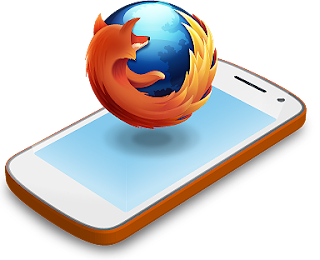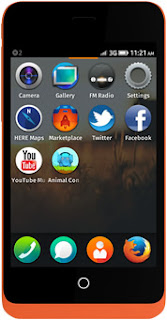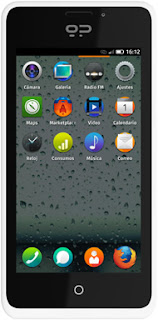All the hype started in July, 2011, when Mozilla research director Dr. Andreas Gal proposed a project known as Boot to Gecko (B2G). This is a project aimed at creating an operating system that works with the Web rather than with apps as in Apple iPhone, Android devices, and Windows Phone.
B2G project has flourished into today’s Firefox OS, which is a highly anticipated project by the Mozilla Corporation. With this development, Mozilla will also get into mobile operating system world. A few days ago, we saw Ubuntu coming to smartphones. We will see more about Firefox OS in this article.
A Spanish firm, Geeksphone has released two Firefox OS smartphones yesterday. They are ultra low-end Keon and somewhat high-end Peak. Here are the technical specs of these devices.
| Property | Keon | Peak |
|---|---|---|
| Display | 3.5 inch HVGA (exact aspect ratio not available); multi-touch; technology used not available. | 4.3 inch qHD (960x540 px); LCD IPS multi-touch |
| Processor | Qualcomm Snapdragon S1 (MSM 7225) 1 GHz | Qualcomm Snapdragon S4 Play (MSM 8225) 1.2 GHz |
| RAM | 512 MB | 512 MB |
| Storage | 4 GB | 4 GB |
| Network | GSM & HSPA 3G | GSM & 3G HSPA |
| Battery | 1580 mAh | 1800 mAh |
| Camera | 3 MP | 8 MP (2 MP front) |
| Others | MicroSD slot MicroUSB (USB 2.0 technology) Wi-Fi 802.11 b/g/n All major sensors | MicroSD MicroUSB (USB 2.0) Wi-Fi 802.11 b/g/n All major sensors |
Disappointed with the tech specs? Yes, they have simply awful hardware specifications.
Qualcomm Snapdragon S1 chip is based on a pretty old architecture, ARM11, which existed before Cortex. It can support Qualcomm’s Adreno 200 graphics processor (now Qualcomm has released Adreno 320 & 330). All in all, it is no match for the current high-speed Android apps and games.
S4 Play processor on Peak can run at maximum of 1.2 GHz and may be quad-core. It also runs ARM Cortex-A5 architecture, which is pretty old too. Right now, the standard is Cortex-A15, as found in Qualcomm’s latest Snapdragon 800 processor and NVidia Tegra 4.
Also, there is no support for USB 3.0 on either of these processors. All in all, the hardware on these devices are far below the current standard.
However, don’t be disappointed because anyway you are not going to buy these phones. These are developer previews, available only to Firefox OS developers, who will be building apps to work with the OS in the coming days.
What Is Open Web All About?
Firefox’s parent, Mozilla Corporation has always been one of the firm advocates of the Open Web. It is the Internet counterpart of open source.
While companies like Microsoft and Apple were building closed-source applications (proprietary applications that don’t let developers outside these companies to modify the applications by limiting access to their source code), Linux Foundation, Mozilla, etc., were developing applications and distributing them free with source code for external developers to build on them and make them better.
Now, Mozilla wants to promote the same development philosophy on the Web, through its Firefox OS platform. This will essentially make all apps open-web and will allow apps to be modified easily to work with other mobile platforms.
Apps on Firefox OS
Firefox OS is based entirely on HTML 5 standard. This means, all your phone functions, such as calling, texting, emailing, etc., and your phone’s hardware specific functions, such as camera operation, sensing, etc., are controlled by HTML 5 web apps. HTML 5 apps are essentially websites that can run through any browser.
The advantage is that you don’t have to install so many apps as you would on an Android phone or your iPhone. In a way, it is similar to Chrome OS.
Now, the important question is: if it can run any website as an app, why would Firefox OS need developers? The answer is simple: In order to make the web app better utilize the hardware capabilities given by the mobile device. For instance, you may already have a specific website running HTML 5, and that website can work as an app inside Firefox OS smartphone. If you like to incorporate the smartphone functions, you simply need to convert your website into an app with simple development tools offered by Mozilla .
An amazing thing is that such web apps can be easily built from existing iOS and Android apps as well. Also, these web apps will consume so much less memory and battery power as compared to an app on iPhone. Also, the smartphone will be very cheap as compared to others in the industry today.
What This Means to You
As a smartphone customer, you may want to buy the device that works best for your needs. Firefox OS hasn’t yet come to the market and it is in the development stages. So is Ubuntu’s upcoming smartphone OS. These are newer operating systems, coming up to compete with Apple iOS and Android.
We will have to see how Firefox OS smartphone performs only after getting our hands on one. Hence, at this point, this is just a tech news story to you, and you don’t have to care a lot. When the devices come to the market, we will check them out and will let you know how the performance is and what real advantages they have.
[Update: ]
Get an experience of the Firefox OS, here is a video from Mozilla. It shows how Firefox can show you the web apps based on your search, even if those apps are not installed on the device. Also, Firefox already seems to have a marketplace. Check this out:


